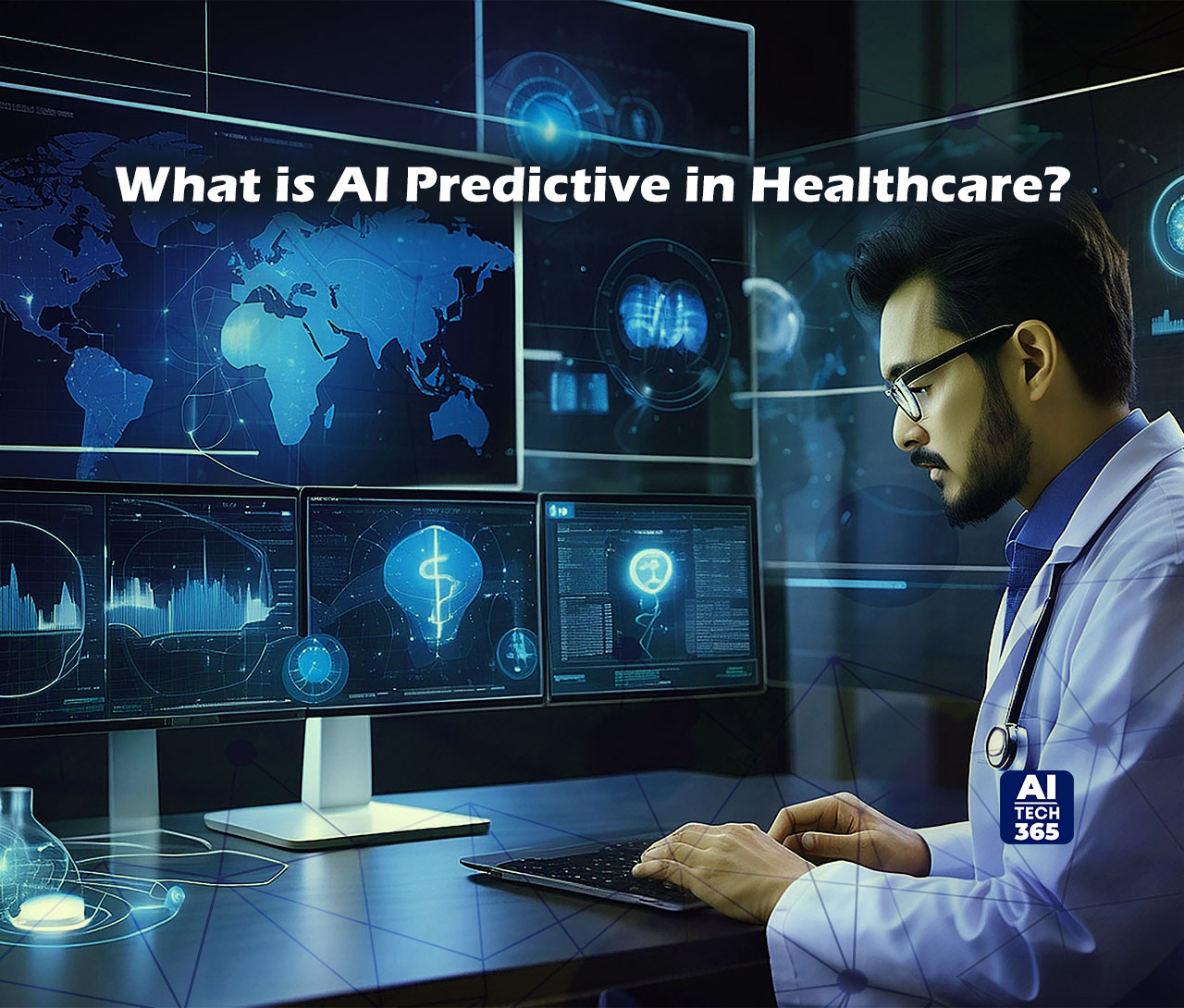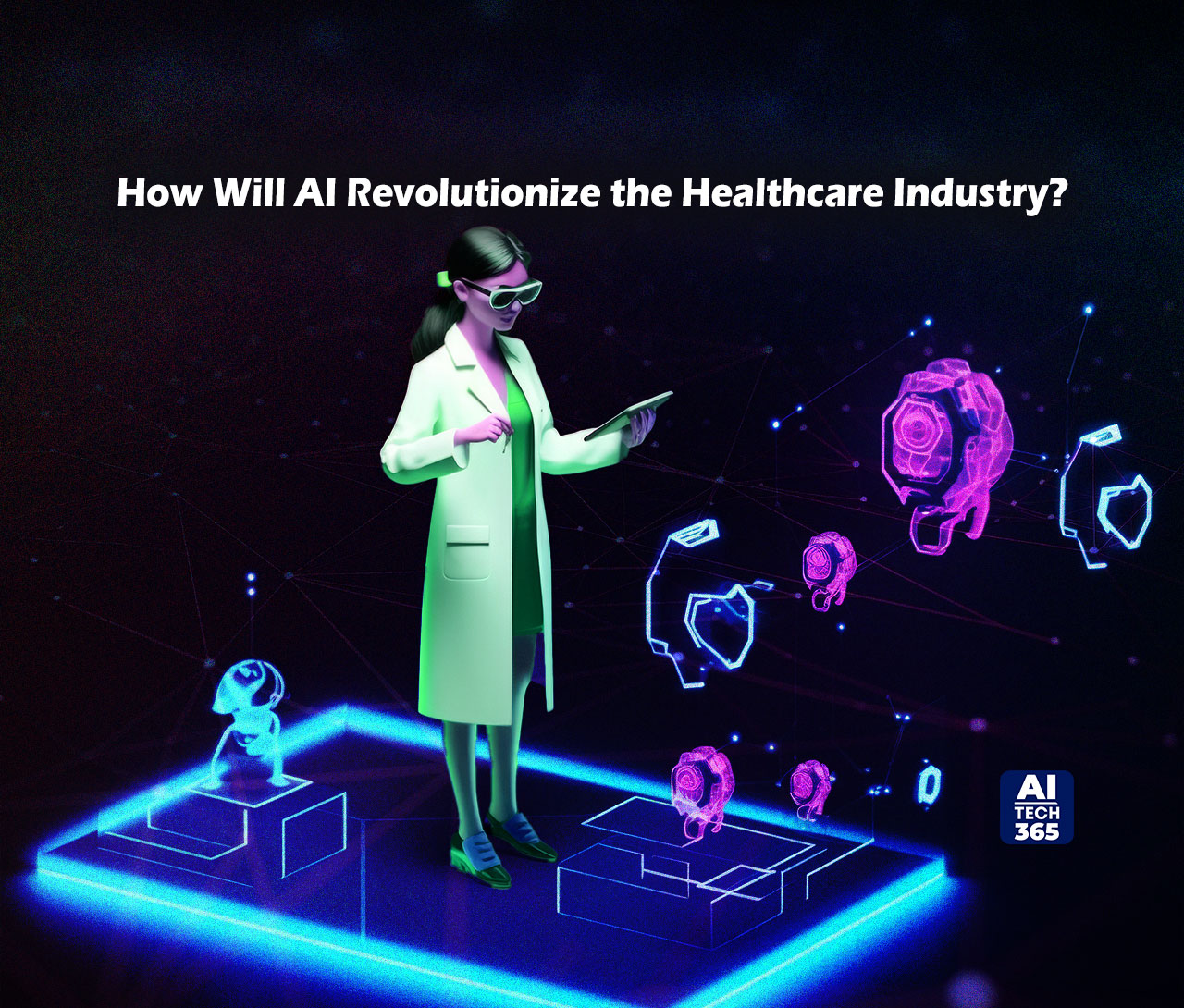The ability to predict and prevent adverse events before they occur has long been a challenge. The lack of accurate and timely insights into patient conditions often leads to delayed interventions and suboptimal outcomes. However, AI predictive analytics in healthcare presents a powerful solution to this problem.
By harnessing vast amounts of patient data and leveraging advanced machine learning algorithms, AI predictive analytics enables healthcare providers to identify patterns, forecast risks, and intervene proactively. Read on!
What is AI Predictive Analytics in Healthcare?
AI predictive analytics in healthcare refers to the application of artificial intelligence (AI) and machine learning algorithms to analyze vast amounts of patient data and make predictions, recommendations, or decisions that can influence real or virtual healthcare environments. By leveraging historical data, AI predictive analytics enables healthcare providers to identify patterns, forecast risks, and intervene proactively.
This transformative technology has the potential to revolutionize healthcare delivery by improving patient outcomes, reducing costs, and optimizing resource allocation. With the ability to predict and prevent adverse events before they occur, AI predictive analytics in healthcare offers a promising solution to the challenges of timely interventions and suboptimal outcomes in the healthcare industry.
How does AI Predictive Analytics In Healthcare Improve Patient Care?
AI predictive analytics in healthcare has the potential to greatly enhance clinical decision support systems. Below are some ways on how it helps improve patient care.
- Personalized and Effective Care: By scrutinizing extensive patient data, AI predictive analytics identifies patterns and predicts disease progression, enabling tailored treatment plans and medication regimens. This personalized approach ensures more effective interventions and improved patient outcomes.
- Early Intervention: AI predictive analytics enables the identification of high-risk patients, facilitating proactive intervention based on forecasted risks and early warning signs. This preemptive approach can potentially avert adverse events, leading to enhanced patient outcomes.
- Streamlined Hospital Administration: Predictive analytics optimizes resource allocation and operational efficiency within hospital administration. By forecasting patient flow, bed occupancy rates, and staffing needs, resources are allocated effectively, ensuring streamlined operations.
- Cost Reduction: AI predictive analytics aids in identifying optimal treatment plans and predicting disease progression, thereby reducing healthcare costs. Efficient resource allocation, avoidance of unnecessary procedures, and optimization of medication usage contribute to cost-reduction efforts.
- Improved Clinical Decision-Making: AI predictive analytics provides healthcare professionals with data-driven insights, aiding in diagnostic accuracy, treatment response prediction, and identification of potential comorbidities. This enhances clinical decision-making, leading to more informed patient care.
- Population Health Management: Predictive analytics plays a crucial role in population health management by analyzing electronic health records and insurance claims data to identify trends and predict disease outbreaks. This informs targeted public health interventions, contributing to improved population health outcomes.
For example, companies like IBM Watson Health and Google’s DeepMind Health have developed AI-powered predictive analytics solutions. IBM Watson Health’s platform aids in sepsis identification, enabling early intervention and reduced mortality rates. This is one of the best use cases. DeepMind Health’s AI algorithms predict acute kidney injury progression, facilitating timely clinical interventions and improved patient outcomes.
In essence, AI predictive analytics in healthcare empowers providers with personalized interventions, early detection capabilities, streamlined operations, cost reduction strategies, enhanced decision-making support, and improved population health management. Leveraging AI and machine learning, healthcare professionals can make data-driven decisions to deliver superior patient outcomes.
How is AI used in predictive analytics?
AI plays a pivotal role in predictive analytics, transforming the way organizations anticipate future outcomes. By harnessing advanced algorithms, predictive analytics powered by AI scrutinizes extensive datasets, uncovering patterns, trends, and correlations that might elude human analysts. Machine learning algorithms, a cornerstone of AI, are particularly instrumental, in learning from historical data to forecast future events or behaviors with increasing accuracy over time.
For instance, in the healthcare sector, AI-driven predictive analytics models can forecast patient outcomes, identify individuals at risk of developing specific conditions, and tailor treatment plans based on personalized data. This capability not only enhances patient care by predicting and preventing adverse health events but also optimizes resource allocation and healthcare delivery, ultimately improving overall healthcare outcomes.
Furthermore, AI augments predictive analytics by enabling the analysis of intricate and unstructured data types, such as medical images, patient records, and genetic information. Natural Language Processing (NLP) algorithms, a subset of AI, empower predictive analytics models to extract valuable insights from textual sources like medical notes, research papers, and clinical trials.
Additionally, AI techniques like deep learning facilitate the analysis of complex medical imaging data, aiding in the early detection and diagnosis of diseases such as cancer and cardiovascular disorders. By integrating AI into predictive analytics, healthcare organizations can anticipate disease outbreaks, optimize treatment strategies, and personalize patient care, ushering in a new era of precision medicine and improved healthcare outcomes.
How Will AI Revolutionize the Healthcare Industry?
The healthcare sector stands at the brink of a profound transformation propelled by advancements in AI technology. The integration of predictive analytics, personalized medicine, and disease detection heralds a new era of patient care, marked by enhanced precision and efficiency. AI empowers medical professionals to analyze vast quantities of patient data in real-time, enabling swift and well-informed decision-making processes.
Furthermore, AI facilitates access to cutting-edge imaging tools, empowering physicians with unprecedented accuracy in disease diagnosis. Particularly in cancer detection, AI-driven imaging technologies enable early identification of malignant cells, surpassing the capabilities of conventional diagnostic methods. Additionally, the development of AI-powered robotic systems holds promise for surgical interventions, offering unparalleled precision and minimizing risks associated with human error. As AI continues to evolve, its transformative impact on the healthcare industry promises to revolutionize patient care, diagnosis, and treatment methodologies, ultimately enhancing health outcomes on a global scale.
What are the Benefits of AI Predictive Analytics in Healthcare?
- Risk Stratification and Chronic Disease Management: By identifying high-risk patients and predicting disease progression, AI predictive analytics empowers healthcare providers to intervene early with targeted interventions, potentially reducing adverse outcomes and associated costs.
- Clinical Decision Support: Providing healthcare professionals with data-driven insights, AI predictive analytics aids in clinical decision-making processes, assisting in disease diagnosis, treatment prediction, and identification of potential comorbidities. This leads to more accurate and informed decisions, ultimately enhancing patient care.
- Improved Care Coordination: Optimizing patient flow, bed occupancy rates, and staffing needs, predictive analytics enhances care coordination within healthcare settings. Efficient resource allocation ensures improved patient outcomes and satisfaction, fostering better overall care delivery.
- Cost Reduction: Through the identification of optimal treatment plans, prediction of disease progression, and optimization of resource allocation, AI predictive analytics contributes to cost reduction efforts in healthcare. By avoiding unnecessary procedures and hospital readmissions, significant cost savings can be achieved.
- Population Health Management: Playing a pivotal role in population health management, predictive analytics identifies trends, predicts disease outbreaks, and informs public health interventions. This proactive approach enhances overall population health and preventive care strategies.
- Enhanced Cybersecurity: AI predictive analytics aids healthcare organizations in detecting and preventing cybersecurity threats by analyzing patterns and identifying vulnerabilities. This ensures the security and privacy of patient data, safeguarding against potential breaches and protecting sensitive information.
- Personalized Medicine: Leveraging patient data to provide valuable insights, AI predictive analytics guides personalized treatment decisions, considering factors like medical history and demographics. This personalized approach improves treatment effectiveness and patient outcomes.
Final Words
AI predictive analytics in healthcare continues to revolutionize the medical industry. Despite significant challenges in data integration, privacy, interpretability, ethics, workflow integration, and regulatory compliance, the transformative potential of AI in healthcare remains undeniable. By addressing these challenges and harnessing the power of AI predictive analytics responsibly, healthcare stakeholders can unlock unprecedented insights, improve patient outcomes, and drive innovation in the pursuit of optimal healthcare delivery.





